Top Five Pieces of Equipment To Upgrade For Your Manufacturing Business
Boost Productivity: Key Equipment Upgrades for Modern Manufacturers
In a competitive manufacturing landscape, staying ahead means keeping up with technological advancements and upgrading critical equipment. Manufacturing businesses can improve efficiency, quality, and production capacity by investing in the right equipment. But with so many equipment options available, it can be challenging to decide where to invest your resources. In this article, we’ll explore five key pieces of manufacturing equipment you can finance to upgrade your business.
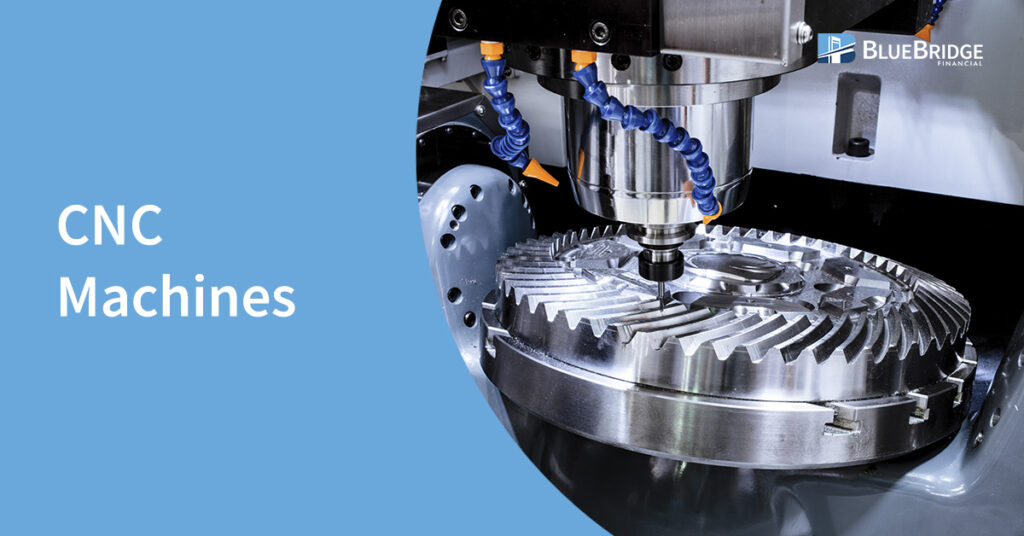
CNC Machines
Computer Numerical Control (CNC) machines allow for precision machining, where intricate parts and components are crafted with unmatched accuracy. Whether your manufacturing business involves prototyping, mass production, or creating customized products, CNC machines offer versatility and efficiency that can upgrade your operations.
Key Uses For CNC Machines:
- Precision Machining
- Prototyping
- Mass Production
- Customization
Improvements in the last 10 years
Adding a modern CNC machine to your manufacturing business or upgrading your current CNC machine can help expand your manufacturing capabilities, reduce costs, and stay competitive in an ever-evolving market.
Increased Automation
Modern CNC machines are more automated than ever, reducing the need for manual intervention and allowing for round-the-clock production with minimal supervision. This automation translates to higher output and consistency.
Smart Technology Integration
The integration of smart technology has enhanced the functionality of CNC machines. Features like real-time monitoring, predictive maintenance, and remote operation have become standard, allowing your manufacturing business to optimize performance and reduce downtime.
Enhanced Speed and Accuracy
Advances in CNC technology have led to faster machining speeds without compromising accuracy. These improvements mean shorter production cycles and the ability to take on more complex projects.
Cost Reduction and Accessibility
CNC machines have become more affordable and accessible to small and medium-sized businesses. Compact designs and lower costs have made it easier for businesses of all sizes to incorporate this technology into their operations.
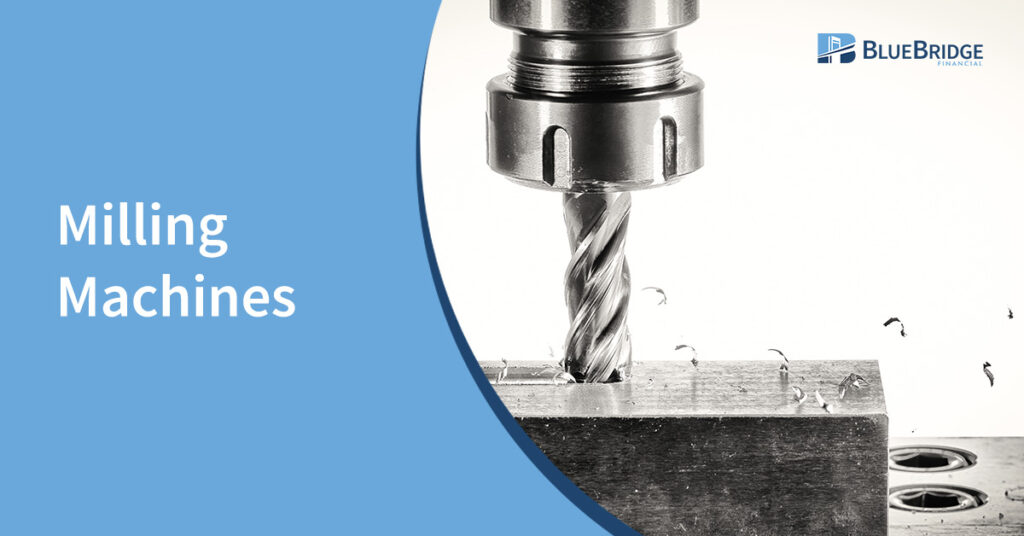
Milling Machines
Milling machines are another essential tool for manufacturing businesses. These machines contribute to your overall production efficiency with material removal, shaping, and surface finishing. Whether your focus is on 2D or 3D machining, modern milling machines offer unparalleled precision and flexibility.
Key Uses
- Surface Finishing
- Material removal and shaping
- Production Efficiency
- 3D Machining
Improvements in the last 10 years
Adding a milling machine to your operation or upgrading your current model can lead to significant improvements in production speed, accuracy, and versatility, making it a wise investment for any manufacturing business.
Increased Efficiency
The latest milling machines are more efficient in reducing energy consumption and waste. These machines can complete tasks faster, which means you can increase your production output without a proportional increase in energy costs.
Enhanced Software
New milling machines run on advanced software, allowing for more intricate designs and precise cuts. This software also enables easier programming and operation, reducing the learning curve for operators.
Multi-Axis Capabilities
Expand the functionality of your milling machines with multi-axis capabilities. These machines can handle more complex geometries, making them suitable for a wider range of applications.
Material Flexibility
Modern milling machines are compatible with various materials, from metals to plastics and composites. This flexibility allows you to diversify your product offerings and take on a broader range of projects.
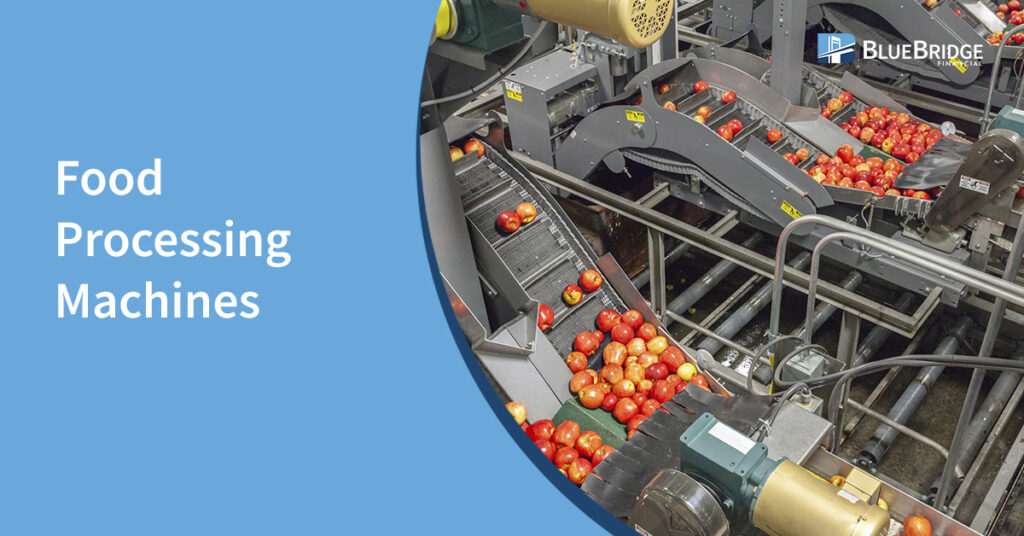
Food Processing Machines
Food processing machines offer greater precision, efficiency, and consistency than traditional methods. Whether you’re aiming to enhance batch processing, scale up large-scale production, or streamline complex multi-step procedures, investing in advanced food processing machines can significantly elevate your operations.
Key Uses
- Precision slicing and dicing
- Batch processing of ingredients
- High-volume food production
- Complex processing and packaging
Improvements in the Last 10 Years
Investing in food processing machines is crucial for increasing production capacity, improving product quality, and reducing operational costs. Upgrading your current food processing machines or adding a new one is indispensable for any innovative food production facility.
Automation and Robotics
Advancements in automation have made food processing machines more versatile and user-friendly. These machines can now handle a wide range of tasks, from precise cutting and mixing to complex cooking and packaging processes.
Industry 4.0 Technologies
The integration of Industry 4.0 technologies, including IoT and AI, has revolutionized food processing machines. These machines can now communicate with other equipment and systems, allowing for a fully integrated and optimized production line that enhances efficiency and reduces downtime.
Enhanced Safety and Quality Control
Modern food processing machines come equipped with cutting-edge safety features and quality control mechanisms. These advancements ensure that your production line operates safely, with strict adherence to food safety standards and minimal errors or defects.
Sustainability Initiatives
Today’s food processing machines are designed to be more energy-efficient, supporting sustainability goals. Reduced energy consumption not only lowers operational costs but also helps food producers meet their environmental responsibilities.
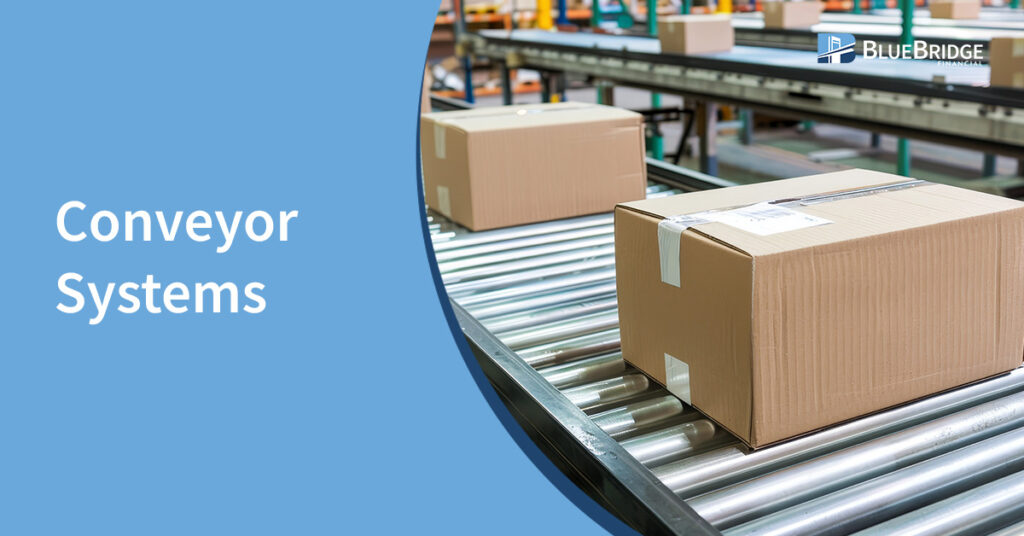
Conveyor systems are the backbone of many manufacturing operations because they provide efficient transport of materials, integration of assembly lines, and streamlined sorting and distribution processes. A well-designed conveyor system can significantly boost your production efficiency and reduce bottlenecks.
Key Uses
- Material Transport
- Assembly Line Integration
- Sorting and Distribution
- Packaging and Palletizing
Improvements in the last 10 years
Upgrading your conveyor systems or adding a conveyor system can lead to significant gains in efficiency, safety, and cost savings, making it a worthwhile investment for any manufacturing business.
Enhanced Monitoring
Modern conveyor systems come with advanced monitoring capabilities, allowing for real-time tracking of materials and products. This helps identify and address issues quickly, minimizing downtime and ensuring smooth operations.
Safety Innovations
Safety has always been a top priority in manufacturing, and recent innovations in conveyor systems have focused on improving worker safety. Features like emergency stop mechanisms, better guarding, and ergonomic designs reduce the risk of accidents and injuries.
Energy Efficiency
The latest conveyor systems are designed to be more energy-efficient, reducing operational costs and environmental impact. These systems use less power without compromising performance, making them an eco-friendly choice for modern manufacturers.
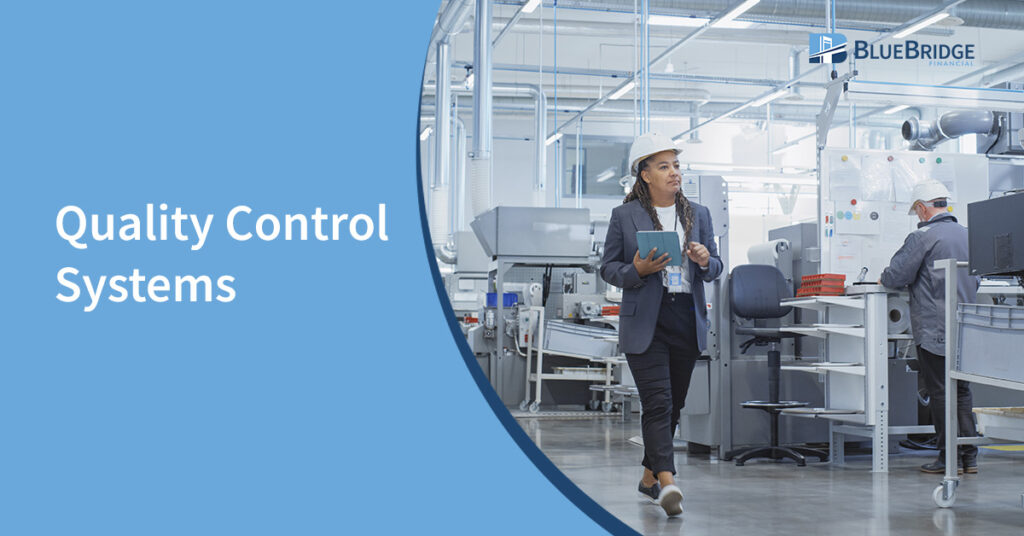
Quality control is critical to maintaining the integrity of your products and ensuring customer satisfaction. Modern quality control systems are more advanced and capable of detecting defects, measuring dimensions, monitoring processes, and ensuring compliance with industry standards.
Key Uses
- Defection Detection
- Dimensional Measurement
- Process Monitoring
- Compliance Assurance
Improvements in the last 10 years
Upgrade your quality control system or add a new one to ensure your products are consistently high-quality, reduce waste, increase customer satisfaction, and protect your brand reputation.
Real-Time Data
Today’s quality control systems provide real-time data, allowing for immediate identification and correction of issues. This capability reduces waste and ensures that only products meeting your standards leave the production line.
AI Integration
Artificial intelligence has been integrated into quality control systems, improving their ability to detect subtle defects and predict potential issues before they occur. This predictive capability helps prevent costly recalls and rework.
Vision-Based Inspection Systems
Vision-based inspection systems have become more sophisticated, reducing the need for extensive manual checks. These systems can identify even the smallest defects, ensuring that your products meet the highest quality standards.
About Blue Bridge Financial
Blue Bridge Financial is a specialty equipment finance firm providing small and medium-sized businesses with secured loans for revenue-producing, essential-use equipment. We serve a wide range of industries, including Manufacturing. Learn more about our Equipment Finance Agreements and contact us to get started with financing the manufacturing equipment you need to upgrade your business
Any Questions? We'd Love to Talk:
About the Author
Nick Devernis is the Vice President of Business Development with expertise in credit analysis and equipment financing. With over 6 years in equipment financing, he offers a wealth of knowledge to readers of Blue Bridge Financial’s blog. He currently oversees the California office and leads the Sales and Marketing departments. Nick’s role as Vice President of Business Development involves management of the sales team, relationship management, and developing strategic partnerships to drive inbound and outbound originations.p> LinkedIn Profile






